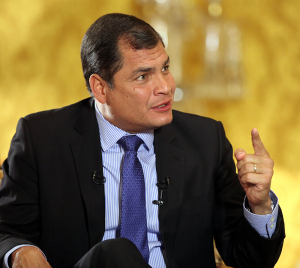EspañolIn Guatemala, initiatives have begun to surface that seek to modify the Constitution regarding the delicate matter of presidential term limits and the possibility of reelection. The president is currently limited to four years, without the possibility of a second term, as established by the Constitution in a non-modifiable article. Now, however, Guatemala appears to be following the trend throughout most of Latin America: to amend constitutions and extend presidential term limits and allow reelection — in some cases even indefinitely.
Ever since the second half of the 19th century, when most republics in Latin America became definitively organized, several countries in the region began to ban reelection for presidents. This constraints was born out of concern that the head of state could become a dictator in perpetuity.
At that time, most constitutions, with the notable exception of Chile’s, set presidential term limits between four and six years and prohibited immediate reelection, if not completely. It is no coincidence that Chile was one of the most stable countries in the region for nearly 100 years. In most other countries, constitutions were either openly or underhandedly violated, leading to long dictatorships like Porfirio Díaz in Mexico, Manuel Estrada Cabrera in Guatemala, and Juan Vicente Gómez in Venezuela, among many others.
The return to democracy during the 1980s led to several countries in the region adopting new constitutions that once again strictly prohibited the reelection of the president as in the 19th century. However, the issue did not end there.
Successful politicians at the time, such as Carlos Menem in Argentina, Fernando Henrique Cardoso in Brazil, and Alberto Fujimori in Peru, used their popularity to modify their respective constitutions and achieve reelection.

This wave of change produced in the late 20th century was followed by the populism of the 21st century, beginning with Hugo Chávez in Venezuela. This strain of populism continued and deepened to the point that countries like Chávez’s Venezuela accepted the indefinite reelection of their president. Following in Chávez’s footsteps came Correa in Ecuador, Morales in Bolivia, and Ortega in Nicaragua, seeking or having already achieved an end to term limits.
In the cases of Argentina, Brazil, Peru, Colombia more recently, and now in Guatemala, there have been attempts to correct constitutions with excessive limitations. The absolute prohibition of reelection after a four or five year term resulted in administrations with short-term visions, a permanent election campaign, and possibly even a weakening of political parties.
However, given the region’s history, a heavily restricted executive may be logical, and the changes currently being proposed create understandable concerns. When the door is opened for reelection, it creates the conditions necessary for a strengthening of the power of the president.
If he and those who support him do not possess the values of a liberal and democratic republic, this will undoubtedly result in the sort of changes that lead to a “legal” dictatorship, like in Venezuela today, where there is no division of political power and the president rules arbitrarily at his discretion. Two centuries after independence, the absolutism of the monarchies of old has sadly made a return — where the king, without any opposition, imposes his will on his subjects.
Another concern in Latin America, however, is that transitions are made far too easily and abruptly from one solution to another as extreme as the one it aims to overcome. Restrictive policies that prevent effective government can jump, without much transition — as in the case of Venezuela or Ecuador — to absolutist dictatorships that lead to a loss of freedom and economic disaster. We’re reminded of the endless cycle of tyranny and anomie during the 19th century in nearly every country in Latin America, when governments would shift from one to another without any regard for individual liberty, except for brief periods of transition.
Balance, moderation, and a true respect for republican values is what we need everywhere. We need to recognize that while it may be very convenient for the government to exercise power without any counterbalance, it is more convenient for the public at large to create an institutional framework that will allow for effective government, ensure alternating administrations, and above all, guarantee political, civil, and economic liberty of all citizens.
 Versión Español
Versión Español












